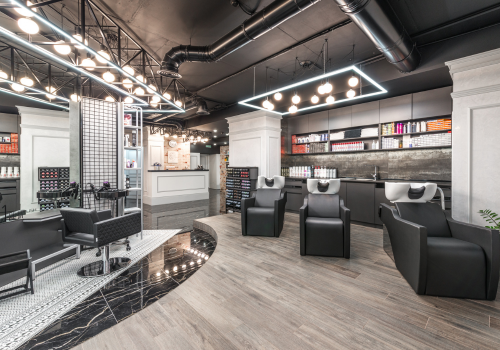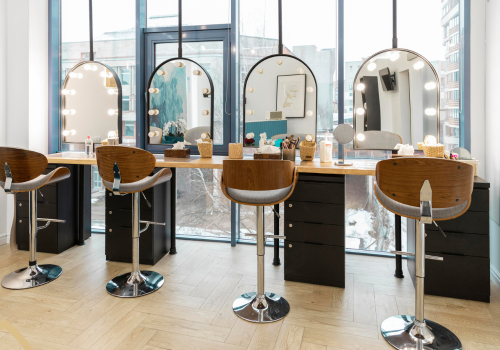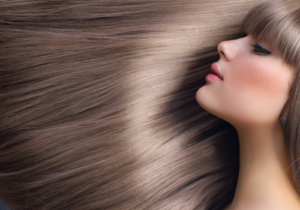Introduction to the Eco-Responsible Trade Show
Over the past few years, eco-responsibility has become an unavoidable trend in many sectors. The hairdressing industry is no exception, and many are wondering how to become an eco-responsible salon. But what is an eco-responsible trade fair? What are the environmental impacts of traditional hair salons, and why is it crucial to turn to greener practices? That's what we're going to explore in this article.
Definition of an eco-responsible trade show
An eco-responsible salon can be defined as a space that implements environmentally-friendly practices. This may involve using eco-responsible beauty products, reducing waste, saving energy and water, among other things.
The main features of an eco-responsible trade show
- The use of natural or organic hair productsfree of toxic substances.
- Visit minimizing waste productionThese include bulk products and recycled packaging.
- Visit reduced energy consumptionWe can help you to reduce your energy consumption by using energy-efficient appliances and optimizing lighting.
- Visit respect for waterwith water-saving techniques or the use of high-quality water.
Steps to becoming an eco-responsible salon
The transition to eco-responsibility may seem overwhelming, but it can be done gradually, step by step.
Understanding the foundations of eco-responsibility
Before changing your practices, it's essential to understand the basic principles of eco-responsibility. This means being aware of the impact of our actions on the environment, and the need to take responsibility for them.
Key concepts of eco-responsibility
- Visit precautionary principleThis means avoiding actions that are potentially harmful to the environment, even when their effects are not yet fully known.
- Visit principle of accountabilitywhich requires the repair of damage caused to the environment.
- Visit polluter pays" principleAccording to this principle, the polluter must bear the cost of cleaning up the pollution.
Overview of relevant environmental standards
Numerous environmental standards can guide hair salons towards a more eco-responsible approach. For example, eco and organic labels guarantee that the products used comply with certain strict environmental standards.

Review your current practices
One of the first steps in becoming an eco-responsible salon is to review your current practices. This will help you understand your current environmental impact and identify areas where you can improve.
Assessing your salon's environmental footprint
It's not always easy to understand the real impact of our activities on the environment. However, there are tools available to help you measure your ecological footprint in concrete terms:
Water consumption
Water consumption in a salon can be high, especially for hair washing. Install meters to know your actual consumption and look for ways to reduce it.
Energy consumption
Another major consumption item is energy: between heating, lighting and the use of various appliances, the potential savings are real. Energy audits can be carried out to identify possible sources of savings.
Hair products and their impact
Conventional hair products can have a significant environmental impact, due to the chemicals they contain. Look for greener alternatives.
Planning a transition to eco-responsibility
Once you have a clear idea of your current environmental impact, you can start drawing up an action plan to become more eco-responsible.
Drawing up an eco-responsible action plan
An eco-responsible action plan can include various objectives, such as reducing water and energy consumption, switching to greener hair care products, or improving waste recycling.
Stages of an action plan
- Define clear objectives: These objectives must be realistic, measurable and adapted to your situation.
- Plan the necessary actions : For each objective, determine the concrete steps to be taken.
- Follow-up : Regular monitoring will enable you to adjust your action plan according to your results.
Involving and training employees in eco-responsibility
The success of your transition to eco-responsibility depends largely on the involvement of your employees. It is therefore essential to train them and make them aware of this approach.
Integrating eco-responsibility into employee training
Train your employees in the principles and practices of eco-responsibility. It's important that they understand the impact of their actions on the environment, and that they are able to adopt new, more environmentally-friendly gestures.
Encouraging employee commitment
Encourage employee commitment by involving them in your approach. For example, ask them to suggest ideas for improving the show's eco-responsibility, and promote their initiatives.
See also: 5 good reasons to use vinegar on your hair?
Concrete suggestions for a greener salon
Use of natural and ecological products
To reduce your impact on the environment, the first step would be to opt for natural, eco-friendly beauty products. These products contain no chemicals that are harmful to the environment, and are often packaged in eco-friendly packaging.
Selection of eco-responsible beauty products
Whether it's shampoos, colorants, hairsprays or gels, choose brands that offer healthier products, both for your customers and for the planet. Many hair care products are now available without sulfates, parabens or silicones. Some are even vegan or certified organic.
Reducing product waste
In addition to choosing more environmentally-friendly products, limit the quantity used at each service and opt for larger formats to reduce packaging. Encourage your customers to bring in their own containers when purchasing products to be used at home.
Adopting energy-efficient practices
In a living room, the use of electrical appliances is inevitable. However, it is possible to optimize their use to reduce energy consumption.
Use of energy-efficient appliances
Choose energy-efficient hairdryers, hair straighteners and electric scissors. And choose low-energy light bulbs for your living room lighting.
Reduced water consumption
Water is a precious resource that is all too often wasted. Implement measures to reduce water consumption in your living room, such as using flow-reducing nozzles on taps and showerheads.
Recycling and waste management
A hair salon generates a significant amount of waste. So it's important to have an efficient waste management system.
Sort and recycle waste
Set up a waste sorting system in your living room. Each type of waste (paper, plastic, metal) should have its own bin. And don't forget to recycle cut-off hair, which in some cases can be used to make building materials or compost.
Motivate customers to take part in the initiative
Customers can also be asked to participate in this environmental initiative. For example, offer a discount to those who return their empty product bottles for recycling. You can also offer reusable bags or canvas tote-bags for carrying purchased products.
Becoming an eco-responsible hair salon is a real commitment, requiring major changes. However, the rewards are considerable: not only are you helping to protect the environment, but you're also attracting a clientele that is increasingly concerned about environmental issues. More than just a trend, eco-responsibility is a sustainable approach that benefits us all.

The advantages of becoming an eco-responsible salon
Preserving the environment
Without a doubt, one of the main benefits of becoming an eco-responsible salon is preserving the environment. By using organic products and reducing your carbon footprint, you're contributing to a healthier, more sustainable planet for future generations.
Attracting new customers
More and more people are attaching great importance to the environment, and are actively seeking out businesses that share this value. So, by becoming an eco-responsible salon, you can attract a growing and loyal clientele who will appreciate your efforts on behalf of the environment.
Save on costs
While it's true that some responsible initiatives may require an initial investment, in the long term they can help you save money. For example, using energy-efficient equipment can reduce your energy bills. Similarly, by reducing water consumption and recycling, you can save on operating costs.
It's good for the show's image
- Taking an eco-responsible approach can be beneficial for your salon's image. It shows that you're a modern business that cares about its impact on the environment.
- It's also likely that your salon will be perceived as more attractive to potential new employees, especially those who are sensitive to environmental issues.
FAQ on how to become an eco-responsible salon
What products can I use in an eco-responsible salon?
You can use organic styling products, homemade products or products in recyclable or biodegradable packaging.
How can I reduce my salon's water consumption?
There are many ways to reduce water consumption, including installing low-flow showers and taps, recycling water wherever possible, and educating employees about the importance of saving water.
How can I encourage customers to support my eco-responsible salon?
You can offer incentives such as discounts for customers who bring their own reusable bags or containers, or you can offer free services for every referral.
What kind of waste can my salon recycle?
In addition to recycling paper and cardboard, many other materials can be recycled in a salon, including shampoo and conditioner bottles, hair color tubes, aerosol cans and so on.
What are the advantages of becoming an eco-responsible salon?
Among the many benefits are a reduced environmental footprint, the attraction of new environmentally conscious customers, and potential savings on long-term operating costs.
Conclusion
Being an eco-responsible salon is more than just a passing trend, it's a path to a sustainable future and a better business. Through small gestures such as using organic products, saving water and energy, and recycling, your salon can make a significant contribution to protecting the environment. Not only will you make a difference in your community, but you'll also stand out in an increasingly competitive industry. Isn't that the best cut you could make?





